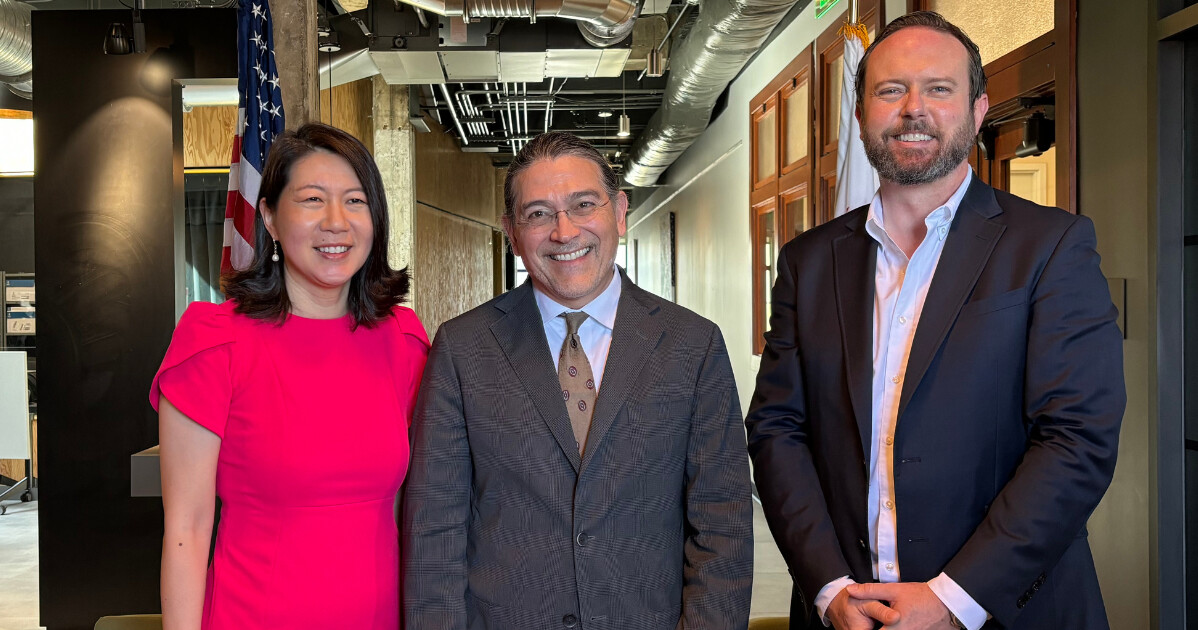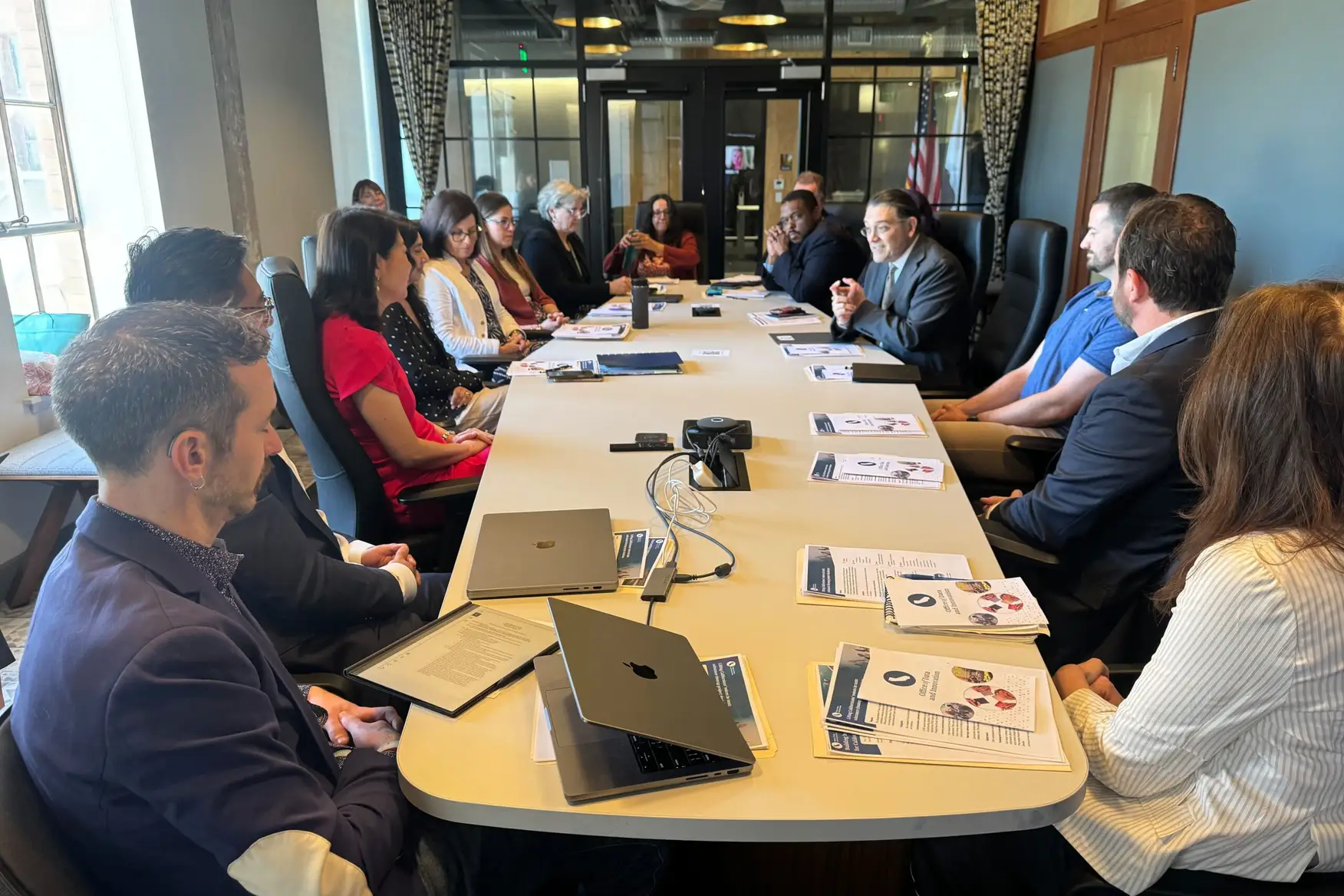
The Office of Data and Innovation (ODI) had the honor of welcoming Robert L. Santos, Director of the U.S. Census Bureau, to our Sacramento headquarters on June 12. Director Santos joined ODI Director Jeffery Marino and Amy Tong, Secretary of the Government Operations Agency (GovOps), as part of the bureau’s planning for the 2030 Census.
The Census Bureau’s mission is “to serve as the nation’s leading provider of quality data about its people and economy.”
ODI’s mission is to drive innovation across California state government, using data, technology, and human-centered design to achieve exceptional, equitable outcomes for all Californians.
It’s very clear we have shared initiatives, including advancing equity with data. Needless to say, we had a lot to talk about. But at the heart of all the conversations were the people we serve, and how we can more equitably meet their needs.

ODI is proud to be working in support of the Governor’s Executive Order on Equity (EO N-16-22).
Because of ODI’s expertise in human-centered design and data, our office was specifically tasked in the executive order with developing statewide standards for collecting race and ethnicity data, and developing a set of service delivery standards that support equity. ODI also drafted the state’s plain language standard, and our CalAcademy training program has trained over a thousand state staff and leaders in how to use plain language in their programs.
“Delivering these data standards and service delivery recommendations will have lasting impacts in advancing equity initiatives across the state through better tracking and analysis of disparities, and ultimately, to better inform policies and practices,” said Director Jeffery Marino. “Adopting these equity best practices enables improved access for Californians to state services, promotes consistent data practices across state agencies and departments, and allows Californians to self-identify in the ways that best represent themselves.”
ODI is also responsible for the state’s data strategy. Per legislation, the state data strategy is updated at least every two years. The strategy is meant to be iterative and responsive as the data and technology landscape are changing fast.
“Ultimately, the data strategy is more than just a document, it is embedded into the way we organize and drive initiatives around data access, governance, and use. I’ve always believed that strategies are most effective when we build them into our work, rather than treating them as documents we put on shelves,” said Jason Lally, State Chief Data Officer, “As a state strategy, it is also linked to core challenges that departments and agencies continue to push on. ODI’s role is to empower the talented data professionals across the State so they can advance ethical and effective use of data. Partnership is key to the State’s success around data.”
The decennial census is vital. Every 10 years, you are asked to participate. Being counted is critical because it translates into federal dollars funneled into your neighborhoods. Those counts matter in the work we do as it relates to key policy issues in the state, including but not limited to housing, health, climate, and infrastructure.
It is very clear why this meeting is vital to equitable outcomes for all communities: an alignment and partnership with the federal bureau is a golden opportunity for the Golden State.
“Data, innovation and technology go hand-in-hand,” said Secretary Tong. “We should be making more decisions based on data. And the Census Bureau is a key partner to the State of California in this endeavor.”
“We’re on a journey together to create more relevant insights that are useful to communities,” said Director Santos. “That is what is so special about this engagement: By bringing together more diverse voices and perspectives, we’re able to produce the highest quality statistics that represent and serve communities.”
Learn more about the wealth of statistics the Census Bureau produces on the population, demographics, business and the economy, education, employment, health, international trade, and more. Also visit www.census.gov/2030Census for more information on the exciting work and research underway ahead of the next census.